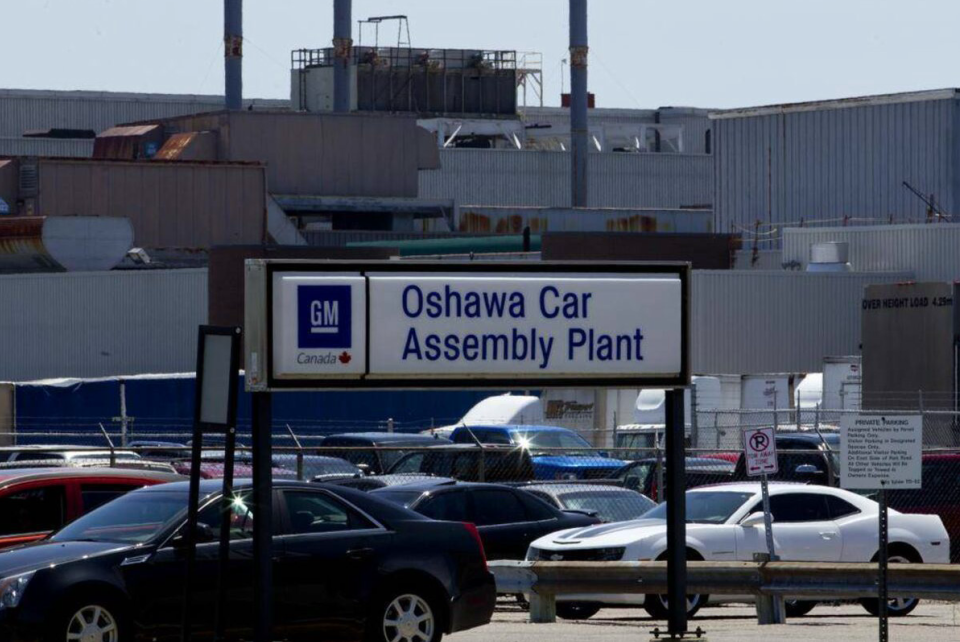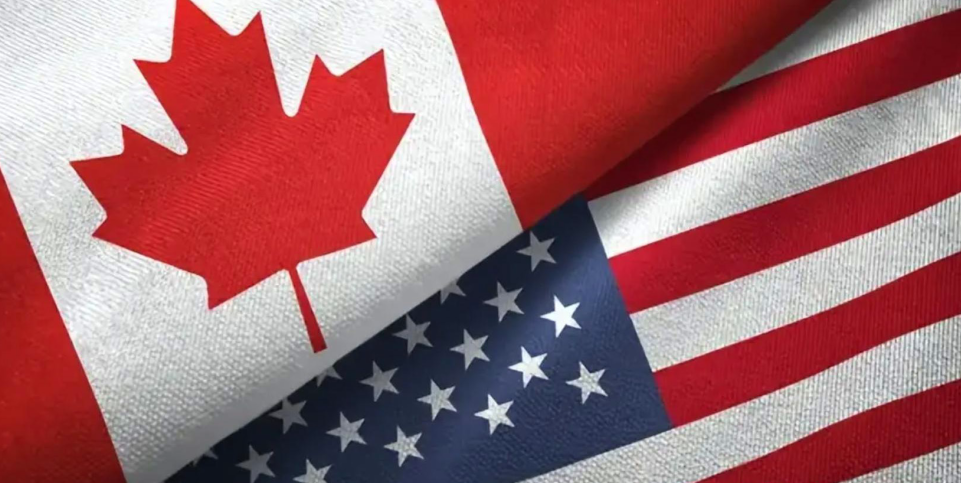Trump Threatens to Strike Canadian Auto Industry
![]() 04/07 2025
04/07 2025
![]() 549
549
The Canadian auto industry, which directly and indirectly employs over half a million workers, stands as a cornerstone of the nation's economy. However, it now finds itself caught in the middle of a tense trade dispute between the United States and Canada, serving as a bargaining chip in negotiations.
The tariff spat between the two countries continues to intensify.
In response to Ontario's announcement of a 25% surcharge on electricity exports to the US, President Trump threatened via social media on March 11: "If Canada does not rescind other severe and long-standing tariffs, the US will significantly raise tariffs on Canadian cars entering our market on April 2. This will effectively shut down Canada's auto manufacturing industry, as these cars can easily be manufactured within the US."
Trump's remarks garnered widespread attention in the US and prompted a swift response from Canadian leaders. Canadian Prime Minister Mark Carney immediately denounced Trump's comments as 'reckless', arguing that they not only harm the economy but also further erode the trust built between the two countries over the long term. Prime Minister Carney made it clear that Canada will take further retaliatory measures if necessary, while emphasizing the need to resolve the dispute through diplomatic channels.
Meanwhile, Ontario Premier Doug Ford stood firm in his decision, emphasizing that Canada will not bow to external coercion and firmly refuses to accept any unfair trade terms. However, the US government has remained relatively silent on this issue, seemingly unwilling to further engage in the intense confrontation led by Trump. This tit-for-tat situation foreshadows a trade war that could seriously affect the economic lifeblood of both countries.
Cross-border Production Shocks Continue
The Canadian auto industry, long considered one of the country's largest economic pillars, employs over half a million workers directly and indirectly. Many major automakers have assembly plants in Ontario, producing models for both the domestic market and substantial exports to the US.
Take Toyota Canada as an example. Its Woodstock plant has been producing the RAV4 model since 2007, while the Cambridge plant has been producing the Lexus RX 350 and RX 450h since 2003 and 2014, respectively. Both models are favored by markets in both countries. Statistics show that about 50% of all Toyota vehicles sold in Canada in 2014 were manufactured domestically, with a significant portion exported to the US.
Furthermore, among the 'Detroit Three,' General Motors' Oshawa assembly plant in Ontario has long produced various models, including the Ford Edge and Lincoln Nautilus, for both the Canadian and American markets, with vehicles exported to the US market. Stellantis' Windsor assembly plant produces models like the Chrysler Pacifica and Dodge Grand Caravan, which are also popular among North American consumers. However, facing potential high tariffs, the Canadian auto industry stands at a critical juncture with a bleak outlook.

On March 18, executives from the 'Big Three' automakers—General Motors, Ford, and Stellantis—found themselves in unprecedented collective anxiety. During a call at the White House, they learned that Trump would proceed as scheduled to impose a 25% tariff on imported Canadian cars on April 2. This call shattered all their previous hopes of securing an extended buffer period. Auto executives emphasized that Trump's policy would severely disrupt cross-border supply chains, causing enormous shockwaves throughout the industry. They also realized that under the current circumstances, the concessions they could secure were already at their limit, and further resistance seemed futile.
François-Philippe Champagne, Canada's Minister of Innovation, Science, and Industry, sought to reassure auto manufacturers in Canada, stating that despite the turmoil caused by tariffs, the Canadian government still hopes to ensure that automakers fulfill their investments and commitments to the country. Champagne said, "We are closely monitoring developments in the auto industry because it is a core industry for the prosperity of this country." Since 2020, automakers have committed to investing $40 billion in electric vehicles in Canada, including battery plants, assembly plants, and battery material plants.
However, the reality is not optimistic. Ford recently changed its plans for the Oakville assembly plant located southwest of Toronto, deciding to cease production of full-size pickup trucks there. Stellantis suspended equipment upgrades at the Brampton assembly plant west of Toronto, which was originally scheduled to produce the next-generation Jeep Compass. Additionally, the construction of a $7 billion electric vehicle battery factory by Volkswagen Group subsidiary PowerCo in St. Thomas, Ontario, has made little progress. These signs indicate that the impact of the trade dispute has already begun to surface.
No Winners in a Beggar-thy-Neighbor Policy
An article released by the Canadian Department of Finance in March pointed out that many Canadian businesses rely on cross-border supply chains. If US tariffs escalate, these businesses will face significant logistical and financial challenges, while demand from US buyers may also decrease. Uncertainty in trade relations has already begun to affect the investment willingness of companies in both countries, with many potentially having to postpone expansion plans, further slowing economic growth. The Bank of Canada also noted in its January Monetary Policy Report that Canadian business investment has declined significantly due to weak demand and rising costs of imported investment goods from the US.
Additionally, with the Trump administration imposing a 25% tariff on a wide range of Canadian goods, Canada faces retaliatory tariffs of $30 billion. This will not only reduce corporate profits but may also lead to further contraction in investment activities.
Industry insiders widely fear that if this trade war continues to escalate, it will have far-reaching negative impacts on the Canadian economy. As one of the country's largest export businesses besides oil and gas, the Canadian auto industry's supporting role in the national economy cannot be ignored. Trump has made it clear that unless Canada transfers all production to the US, its auto industry will never be free from the heavy burden of tariffs. This policy not only means that Canada would have to abandon its skilled labor and long-accumulated industrial advantages but would also require billions of dollars in new investments to rebuild the supply chain.

If Trump follows through with his threat, the Canadian auto industry will undoubtedly face a devastating blow. First, Canadian auto plants may face closures, layoffs, and regional economic instability, putting hundreds of thousands of workers directly or indirectly employed in the industry at risk of unemployment. Second, Canadian auto parts manufacturers will also struggle to withstand the impact. As most contracts allow automakers to deduct tariffs when settling parts payments, suppliers' already slim profits will be further eroded, plunging the entire industrial chain into difficulties.
Strictly speaking, the Canadian auto industry is an extension of 'nearshoring' by the US, forcibly relocating a relatively mature and well-established system benefiting from the USMCA back to the US mainland. While this may seem like a strong medicine in the short term, in the long run, American consumers and manufacturers will also be hard-hit. Due to tariffs reducing imports of Canadian-made cars, US automakers will have to face higher raw material and production costs, which will likely be passed on to consumers, causing car prices to rise. The disruption of cross-border supply chains may also lead to production delays and shortages of parts, affecting the entire auto market. Investors have already begun to react to this series of uncertainties, with auto industry stocks taking a heavy hit and market confidence shaken.
This small dispute over electricity surcharges is rapidly evolving into a major game involving the economic lifeblood of both countries and the future of the auto industry. The tariff dispute between the US and Canada is not just a political spat but also affects the livelihoods of hundreds of thousands of workers, a multi-billion dollar industrial chain, and the economic stability of both countries. All parties need to find a way out under pressure, perhaps through diplomatic negotiations and economic adjustments, to ultimately resolve this complex trade crisis and restore the normal operation of the market.
Note: This article was first published in the 'Hot Topics' section of the April 2025 issue of 'Auto Review' magazine. Stay tuned.

Images: From the Internet
Article: Auto Review
Typesetting: Auto Review







